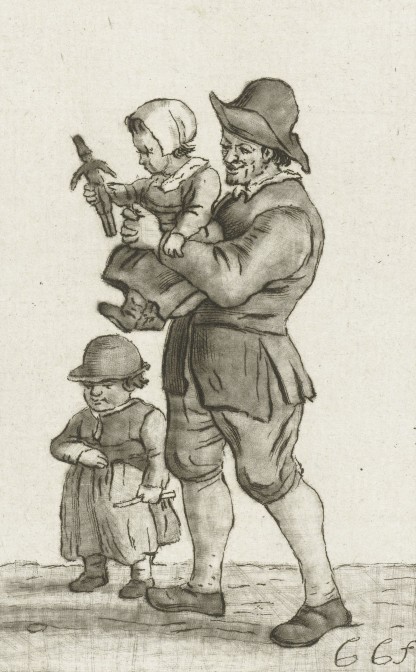If a child is born out of wedlock, it is possible he or she was later legitimized when the mother married. Legally, the mother’s husband would then be the father. But that doesn’t mean he was the biological father.
In these situations, there are several things you can do to verify if the legal father was also the biological father:
- You can compare timelines of the mother and the legal father to see if they were in the same place around the time of conception.
- You can research the mother and legal father to see if there’s an explanation why they couldn’t marry sooner. For example, he may have served in the military or could have been away at sea.
- If the child was male and has living strict male-line descendants, you can use Y-DNA testing to compare them to other known strict male-line relatives of the legal father, for example descendants of later children or of brothers of the legal father.
- If the illegitimate child was born just a few generations ago, autosomal DNA testing of the child’s descendants may show DNA matches on the legal father’s side, which could help to confirm he was indeed the biological father.
See How to Find the Father of an Illegitimate Child for more tips.

Father and his children, Pieter de Mare, 1768 – 1795. Credits: Rijksmuseum (Public Domain)


I thought that if the father was the informant for the birth on the birth certificate and also signed the birth certificate, that was good evidence that he was the father?
Regulations only allowed the legal father to register the birth. A biological father who was not married to the mother was not allowed to register the birth unless he was present at the birth or owned the house where the birth took place. If the informant was the legal father, the record will say so.
Hmmm. In the birth of Oeds Zandstra in 1885 in Kooten, Roel Zandstra was the declarent and the record says that Oeds was born in his house and in his presence but doesn’t say that he was Oeds’ father. Does this mean I that I should record the birth as illegitimate? And separately record that the father legally acknowledged Oeds at the time of marriage? I have several similar situations.
URL: https://allefriezen.nl/zoeken/deeds/69d68675-6254-ee00-04ef-f784bc422ef1
Correct, that’s an illegitimate birth. You can see that because the main record does not identify Willemke Wiersma as his wife, and because of the note in the margin that says the child was acknowledged when Zandstra married the mother. The child would have been known as Wiersma until his mother married Oeds Zandstra and they legitimized the child. In these circumstances, it’s highly likely that he was the biological father, but he wasn’t the legal father until he married the mother. Had Oeds Zandstra died before the marriage, the children would not have inherited since there was no legal bond between them.
Thanks Yvette, looks like I’m going to have to change the way I’ve been recording this kind of birth in my software. First record the birth as illegitimate with no father and then at the time of marriage (or other acknowledgement) add relationship to the father as “acknowledged”.
This, I think, is a great illustration of Yvette’s point, although these records involve children born after the marriage not before. The husband/father was apparently a sailor; I’m guessing he was lost at sea. Starting with the 1883 birth record, and continuing through the next 15 years of birth records, there is always a note stating that the father’s whereabouts are unknown. Near as I can tell, the wife moved on with another companion, but because the death of her husband was never verified, he was legally considered the father of all of her children, whether or not he was the biological contributor. http://allegroningers.nl/zoeken-op-naam/persons?sa=%7B%22person_1%22:%7B%22search_t_geslachtsnaam%22:%22vri*%22,%22search_t_voornaam%22:%22ma*e*%22%7D,%22person_2%22:%7B%22search_t_geslachtsnaam%22:%22ril*%22,%22search_t_voornaam%22:%22b*e*w*%22%7D%7D&sort=%7B%22order_i_datum%22:%22asc%22%7D